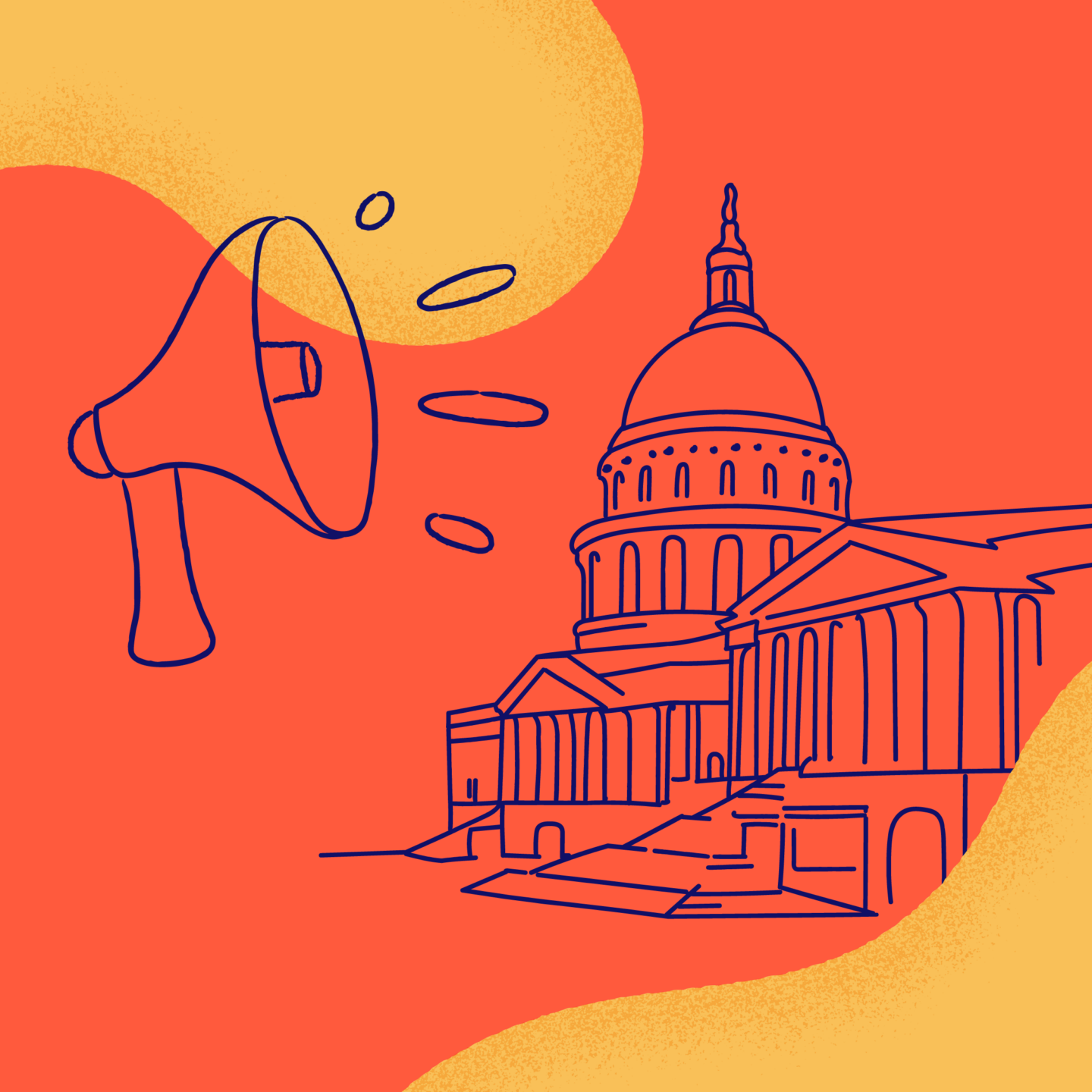Youth's Lives Every Day
An interview with Janson Wu (he/him), Sr. Director, State Advocacy & Government
Written by Ryan Bernsten (he/him), Senior Managing Editor
RYAN: Let’s start really high-level. Why is the 2024 legislative season so important?
JANSON: We’ve already seen close to 300 anti-LGBTQ+ bills introduced already in 2024. Last year we saw a record-breaking 600+ anti-LGBTQ+ bills introduced, and 82 of those passed into law. This year, we’re seeing our opponents double down on the breadth and cruelty of their attacks. Where we saw gender-affirming care bans targeting youth last year, we’re now seeing restrictions for adult care. Where we once saw laws defining sex as a person’s assigned sex at birth for purposes of restrooms, locker rooms, and sports, we’re now seeing attempts to broadly define sex to exclude transgender identities that span the entirety of a state’s codes. And then where we first saw bans on what teachers could say in the classroom about LGBTQ+ identities, we’re now seeing bans on what they can say even to each other in the lunchroom or at the water cooler. So this session is more important than ever for people to be engaged because our opponents are doubling down and we have to as well.
RYAN: So why are these legislative sessions important specifically in relation to LGBTQ+ young people?
JANSON: The majority of attacks are targeting LGBTQ+ youth, particularly transgender youth. They seek to ban life-saving medical care that we know can significantly reduce the likelihood of suicide amongst LGBTQ+ youth. They are looking to ban transgender youth from playing sports with their friends, and we know how important community is to improving the mental wellbeing of LGBTQ+ youth. And finally, they seek to erase our community and our families from the classroom, which is where LGBTQ+ youth spend the majority of their time. So state legislatures have such a direct impact on all of our lives and especially young people’s lives, and that’s why we have to pay attention to the state level in addition to what’s happening in D.C.
RYAN: And how is Trevor specifically involved in fighting these bad bills?
JANSON: Trevor’s dedicated and talented advocacy team is deeply involved at the state level, across the country. We are a trusted leader when it comes to LGBTQ+ youth mental health and suicidality. Our research is consistently cited by decision-makers and our experience working with young people through our crisis services informs our advocacy work. We can testify at hearings and provide that expert perspective on LGBTQ+ youth mental health and suicide. We can text our supporters and ask them to call their legislators. We can employ strategic communications to educate and persuade the public and decision makers. And finally, we can mobilize our community through phone, digital and social media campaigns to get our community and our allies engaged by calling their legislators and letting them know that they support LGBTQ+ youth.
RYAN: What can supportive adults do to show up for LGBTQ+ young people from an advocacy perspective?
JANSON: We know that some of the most powerful messengers are parents, teachers, and sports coaches. When these adult allies show up for young people, it takes the weight off of these young people’s shoulders. They can see that they’re not alone in advocating for the right to exist. They can instead focus on their homework, on being a kid and enjoying the activities that all young people should be able to enjoy. So that’s first and foremost, adult people can show up to try to persuade decisionmakers. (See our Guide to Testifying Against Harmful Bills for Parents and Supportive Adults.)
Secondly, I think adults can support young people by helping create affirming spaces, whether that’s at home, in the community, or at schools. We know that affirming spaces are critical to an LGBTQ+ young person’s mental wellbeing. One very specific way to help create that affirming space is by supporting TrevorSpace, which is Trevor’s peer-to-peer social networking platform that has best practice content moderation to ensure that LGBTQ+ young people have a safe place to connect with each other.
RYAN: If people specifically wanted to be kept informed about ways they can get involved with Trevor’s advocacy efforts, how could they do that? Is there a, I don’t know, handy number they could text…?
JANSON: There is a handy number. You can become a Trevor Advocate and receive action alerts specific to your home state, by going to this link or texting TREVOR to 50457.
RYAN: Is there any message of hope you want to give young people about efforts to defeat these bills?
JANSON: Last year was unprecedented in the scope and depth of attacks. Still, we were able to stop almost 90% of those bills. And we saw a record number of 14 pro-LGBTQ+ bill signed into law. That’s all thanks to organizations like The Trevor Project. It’s important during these challenging times to hold perspective alongside urgency. For example, for so many LGBTQ+ people, they could never have imagined that marriage equality would be the law of the land in their lifetime. Just 10 years ago, there were only a handful of healthcare centers providing lifesaving gender affirming care. And so the attacks we’re seeing are not a sign of our weakness. They’re a response to our collective strength. I mean, when you look at public support for LGBTQ+ nondiscrimination, it is at record high levels, and that is what our opponents are terrified of. They’re trying to put the genie back in the bottle, and honestly, they will lose. The question is how many lives will be lost along the way? Our job is to save as many lives as possible at the same time as we continue to bend that moral arc toward justice.
You can count on The Trevor Project to do everything we can to save young people’s lives. Whether that is through our life-saving crisis intervention services or our programs dedicated to addressing the root causes of LGBTQ+ youth suicide, including the work of our Advocacy department, we won’t rest until we have created a world where every LGBTQ+ young person can see a future for themselves that is full of hope and light.


